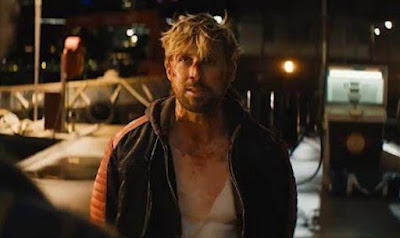Someone show me another business as enthusiastic for its own self-deprecation as Hollywood.
From affectionate self-parodies like Singin' in the Rain to darker reflections of the movie business like Sunset Boulevard, Hollywood has kind of built its empire on ridicule of itself. And why wouldn't it? Who wouldn't want to pay admission to feel like they're in on the secret: that movie magic is just smoke and mirrors? That silver screen titans actually have the most fragile egos?
But these are not revelations, and I don't think they are intended to be. Hollywood doesn't really care about displaying its own pettiness and internal rot because it knows that all just makes for good entertainment. At some point, this all stops feeling like a joke that we, the audience, are in on. At some point, it all stops feeling less like a confession and more like gloating. At what point, then, does the joke turn on us, the enablers of this cesspool whose claim to ignorance dwindles with every ticket sold?
Anyways ... if I start my review of this Friday night action-comedy with a raincloud over my keyboard, it is because this film's subject matter is admittedly playing with some live ammunition. Ryan Gosling grumbling about how all you have to do to act like a star is to pretend "my actions have no consequences" is played like a joke, but it doesn't feel at all like a joke to an audience that is seeing so many movie stars and producers break free of the #MeToo cage that we were so sure was finally going to hold abusers to accountability. It's just twisting a knife.
But I also realize that it is not all on one movie to snuff out all of Hollywood's snake holes. Moreover, I want to give the movie its due credit as a vehicle for people who maintain some reverence for film as a source of communal renewal, both for the people making it and the people receiving it.
This film peels back the curtain of film business by following a recovering stunt man, Colt Seavers (Ryan Gosling), whose first job back sees him setting himself on fire in his ex-girlfriend's (Emily Blunt) directorial debut. Colt's used to taking the fall for the A-lister, and even for his ex, but his order gets a lot taller when the film's star disappears and he is the only one who can keep this project from falling apart. But as Colt finds out, he's not the only one who'll go any lengths to see that this film doesn't tank.
Without ruining the surprise, what follows is an elaborate exposé on the power economy of Hollywood padded by even more elaborate action displays which themselves are padded by a lot of flirtation between Ryan Gosling and Emily Blunt. None of the film's revelations will come as a surprise to anyone who cares enough about the conversation to pay attention to it, but that's beside the point. And it's not like the politics of the film are entirely out of synch with the business' present needs. It is not lost on me that the story rests on a first-time woman director trying to plant her feet in this field, and I can see how that's a useful picture.
As a vessel of entertainment, this film really works. The plot elements congeal. The onscreen stars are all shining (special shoutout to Hannah Waddingham who sparkles even behind her character's seedy smirk). The spectacle is tethered to sound story elements. This feels like a crew of people behind and in front of the screen who love what they do tracing out the manpower required to get this engine running.
At the end of the day, it is that deference to entertainment that keeps this film shackled. This could have pushed some boundaries. Said the quiet part a little louder, that far from having bad-faith players forced on the system, Hollywood is actually merrily complicit in roping in these folks even after their transgressions have been known. Some will say that's not the business of blockbusters, and who knows? Maybe they're right. But I also think it's fair of us as audiences to ask who it is that's supplying that line of thinking in the first place.
--The Professor




Comments
Post a Comment